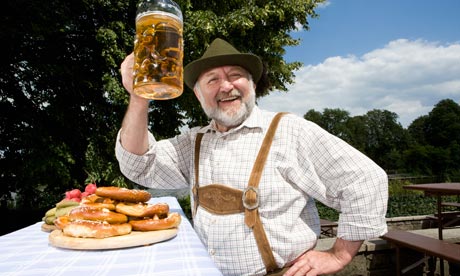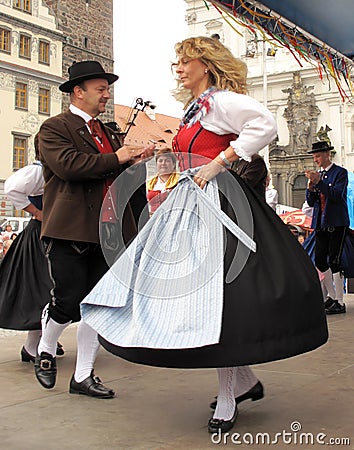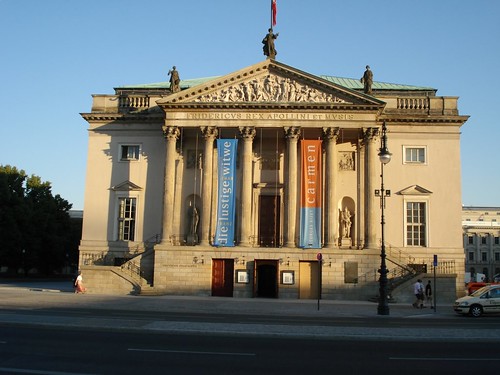
Stellenangebote fϋr Ärzte in Deutschland
Deutschland
 Interested in learning more about Germany? Click below to read the description and find out more about:
Interested in learning more about Germany? Click below to read the description and find out more about:
Deutschland
 Interested in learning more about Germany? Click below to read the description and find out more about:
Interested in learning more about Germany? Click below to read the description and find out more about:
Germany: “Das Land der Dichter un Denker”
Officially, the Federal Republic of Germany (Bundesrepublik Deutschland) is a federal parliamentary republic in Europe. The country consists of 16 states while the capital and the largest city is Berlin. Germany covers an area of 357,021〖km〗^2 and has a largely temperate seasonal climate. With 81.1 million inhabitants, it is the most populous member state and the largest economy in the European Union. It is one of the major political powers of the European continent and a technological leader in many fields.
Most of Germany has a temperate seasonal climate in which humid westerly winds predominate. The climate is moderated by the North Atlantic Drift, the northern extension of the Gulf Stream. This warmer water affects the areas bordering the North Sea; consequently in the north-west and the north the climate is oceanic. Rainfall occurs year-round, especially in the summer. Winters are mild and summers tend to be cool, though temperatures can exceed 30 °C
It has the world’s fourth largest economy by nominal GDP (€2.570 trillion) and the fifth largest by purchasing power party (2460billion). It is the second largest exporter and third largest importer of goods. The country has developed a very high standard of living and a comprehensive system of social security. Germany has been the home of many influential scientists and inventors, and is known for its cultural and political history. Of the world's 500 largest stock market listed companies measured by revenue, 37 are headquartered in Germany. In 2010 the ten largest were Volkswagen, Allianz, E.ON, Daimler, Siemens, Metro, Deutsche Telekom, Munich Re, BASF, and BMW.








Germany ranks among the EU Member States as one of the countries with the highest healthcare expenditure, exceeding 11% of its GDP € 2570 billion, providing state of the art medical coverage for all its inhabitants. The number practicing physicians per 100.000 inhabitants reached 364.1 in 2009.


The federated states are in charge of the cultural institutions. There are 240 subsidized theaters, hundreds of symphonic orchestras, thousands of museums and over 25.000 libraries spread in Germany. These cultural opportunities are enjoyed by many: there are over 91 million German museum visits every year, annually 20 million go to theaters and operas, 3.6 million per year listen to symphonic orchestras.



Bayern Opera, Scenes from Valkyrie, Berlin Opera
Germany has been named the world’s second most valued nation among 50 countries in 2010. A global opinion poll for the BBC revealed that Germany is recognized for having the most positive influence in the world in 2011.
Arts:
Music:
Literature:
German philosophy is historically significant. Gottfried Leibniz's contributions to rationalism; the establishment of classical German idealism by Immanuel Kant, Johann Gottlieb Fichte, Georg Wilhelm Friedrich Hegel and Friedrich Wilhelm Joseph Schelling; Arthur Schopenhauer's composition of metaphysical pessimism; the formulation of communist theory by Karl Marx and Friedrich Engels; Friedrich Nietzsche's development of perspectivism; Gottlob Frege's contributions to the dawn of analytic philosophy; Martin Heidegger's works on Being; and the development of the Frankfurt school by Max Horkheimer, Theodor Adorno, Herbert Marcuse and Jürgen Habermas have been particularly influential. In the 21st century Germany has contributed to the development of contemporary analytic philosophy in continental Europe, along with France, Austria, Switzerland and the Scandinavian countries


German cuisine varies from region to region. The southern regions of Bavaria and Swabia, for instance, share a culinary culture with Switzerland and Austria. In all regions, meat is often eaten in sausage form. Organic food has gained a market share of ca. 2%, and is expected to increase further. Although wine is becoming more popular in many parts of Germany, the national alcoholic drink is beer. German beer consumption per person is declining, but at 121.4 liters in 2009 it is still among the highest in the world. The Michelin guide has awarded nine restaurants in Germany three stars, the highest designation, while 15 more received two stars. German restaurants have become the world's second-most decorated after France.
Twenty-seven million Germans are members of a sports club and an additional twelve million pursue sports individually. Association football is the most popular sport. With more than 6.3 million official members, the German Football Association (Deutscher Fußball-Bund) is the largest sports organisation of its kind worldwide. The Bundesliga attracts the second highest average attendance of any professional sports league in the world.
The German national football team won the FIFA World Cup in 1954, 1974 and 1990 and the UEFA European Football Championship in 1972, 1980 and 1996. Germany hosted the FIFA World Cup in 1974 and 2006 and the UEFA European Football Championship in 1988. Among the most well-known footballers are Franz Beckenbauer, Gerd Müller, Jürgen Klinsmann, Lothar Matthäus, and Oliver Kahn. Other popular spectator sports include handball, volleyball, basketball, ice hockey, and tennis.



Michael Schumacher
- A meal at an inexpensive restaurant: 8.25€
- A three-course meal for two at a mid-ranged restaurant: 38.3€
- 1 Liter of milk: 0.73€
- Fresh white Bread: 1.72€
- 1 kilogram of chicken breasts: 6.98€
- 1 kilogram of oranges: 2.28€
- 1 kilogram of potatoes: 0.92€
- A monthly pass for the local transport system: 54.70€
- 1 km with a taxi with normal tariff: 1.49€
- 1 liter of gasoline: 1.48€
- Monthly utilities: 128.62€
- 1 minute of pre-paid mobile tariff: 0.14€
- Internet access (6Mbps, Flat Rate, Cable/ADSL): 22.53€
- The monthly fee for an adult at a fitness center: 44.27€
- 1 hour tennis court rent in the weekend: 15.76€
- 1 seat in the cinema for an international release: 8.41€
- The rent for a 1 bedroom apartment ranges from 250 to 450 €
- The rent for a 3 bedroom apartment: 400 – 900 €
This does not mean you can’t find a cheaper apartment!
Stellenangebote fϋr Ärzte in Deutschland
- Bitte wahlen sie ein Bundesland um die jeweiligen Arbeitsangebote zu sehen wählen
- Baden-Wurttemberg
- Bayern
- Berlin
- Brandenburg
- Bremen
- Hamburg
- Hessen
- Mecklenburg-Vorpommern
- Niedersachsen
- Nordrhein-Westfalen
- Rheinland-Pfalz
- Saarland
- Sachsen
- Sachsen-Anhalt
- Schleswig-Holstein
- Thuringen
















